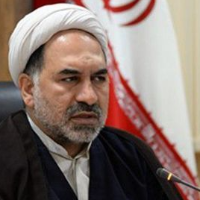Interreligious Dialogue and the Problem of
Author(s):
Abstract:
Interreligious dialogue has never been the subject of extensive debate as it is today. It looks like human has never experienced the importance of being different as profoundly and tangibly when facing with the everyday concept of "otherness" as he does these days. It leaves no wonder why the interreligious dialogue has become an inevitable task in the present era. The formation and then the fruitfulness of interreligious dialogue are based more than everything else on the recognition of the "religious other. Dialogue entails devoting certain space for others and admitting others and when it comes to interreligious dialogue it requires providing special space for other religions and their adherents. The nature of religion, however, presupposes obligation and negation that is: obligation toward the religious doctrines and negation of other religions. Thus, considering this fact, is it possible for religions to admit "religious other" and welcome the interreligious dialogue? The present study is based on this assumption that the contrast between interreligious dialogue and "religious other" from the viewpoint of theology is the result of theological interpretation that the followers of a religion would have of other religions. The three approaches of exclusivism, inclusivism and pluralism, each of which requires specific theological interpretation toward other religions, make up the paradigms that have been formed within the theology of religions over time and have done their best to solve the problem of "religious other" In this paper, at first the value judgment of the three paradigms referring to the theology of religions with regard to religious diversity will be analyzed, then using the Baumann's theory of " Grammars of Identity / Alterity " we will try to elaborate on the relationship between the interreligious dialogue and the problem of "religious other" from the perspective of the three mentioned theological patterns. Based on the findings of the study each of the exclusive, inclusive and pluralistic interpretation of theology offers a different explanation of the terms "self" and "other" and seeks a specific tie with the notion "religious other". Accordingly, there is a meaningful relationship between interreligious dialogue and the way the "religious other" is interpreted. The more Christian theology indicates acceptance of "religious other" the more probable it will be to hold the interreligious dialogue. In addition to increasing the level of religion's tolerance toward "religious other", and would drive the interreligious dialogue toward a more real one, this quality would turn the religious identity from static and self-sufficiency phenomenon to a more dynamic and pluralistic one.
Keywords:
Language:
Persian
Published:
Comparative Theology, Volume:6 Issue: 13, 2015
Pages:
89 to 104
magiran.com/p1500933
دانلود و مطالعه متن این مقاله با یکی از روشهای زیر امکان پذیر است:
اشتراک شخصی
با عضویت و پرداخت آنلاین حق اشتراک یکساله به مبلغ 1,390,000ريال میتوانید 70 عنوان مطلب دانلود کنید!
اشتراک سازمانی
به کتابخانه دانشگاه یا محل کار خود پیشنهاد کنید تا اشتراک سازمانی این پایگاه را برای دسترسی نامحدود همه کاربران به متن مطالب تهیه نمایند!
توجه!
- حق عضویت دریافتی صرف حمایت از نشریات عضو و نگهداری، تکمیل و توسعه مگیران میشود.
- پرداخت حق اشتراک و دانلود مقالات اجازه بازنشر آن در سایر رسانههای چاپی و دیجیتال را به کاربر نمیدهد.
In order to view content subscription is required
Personal subscription
Subscribe magiran.com for 70 € euros via PayPal and download 70 articles during a year.
Organization subscription
Please contact us to subscribe your university or library for unlimited access!


